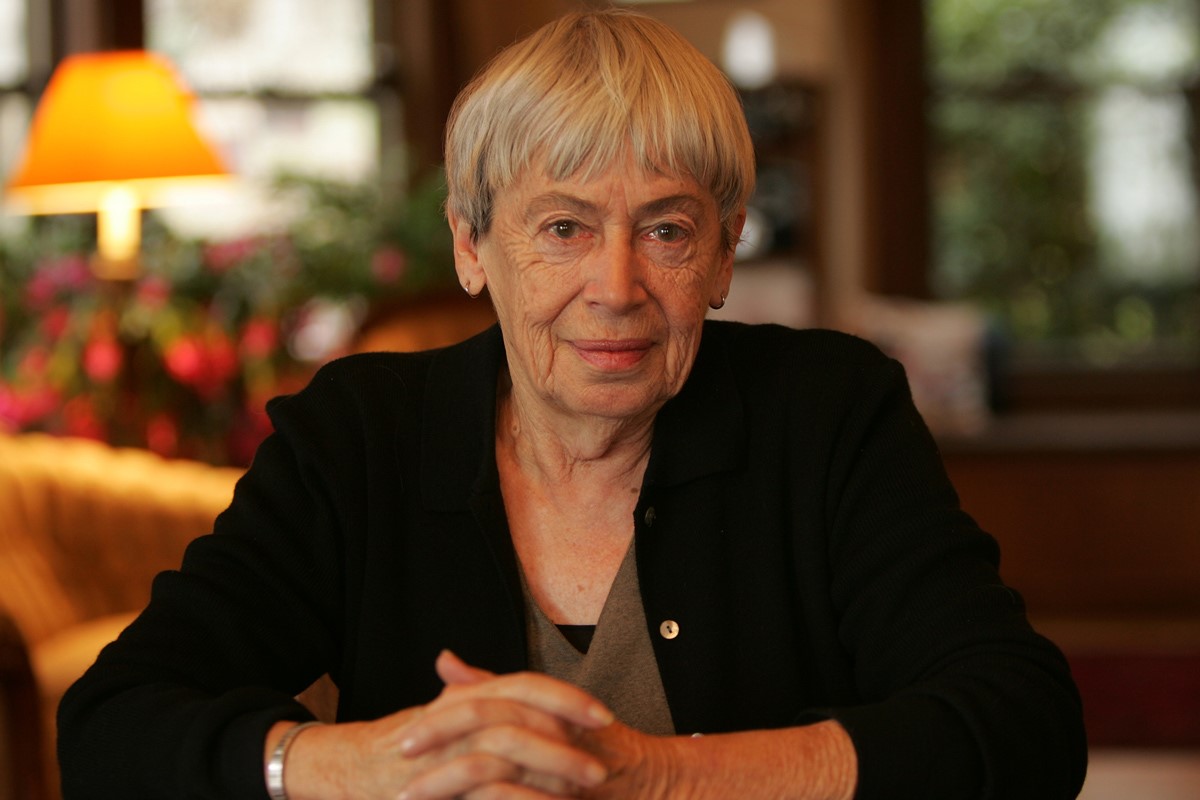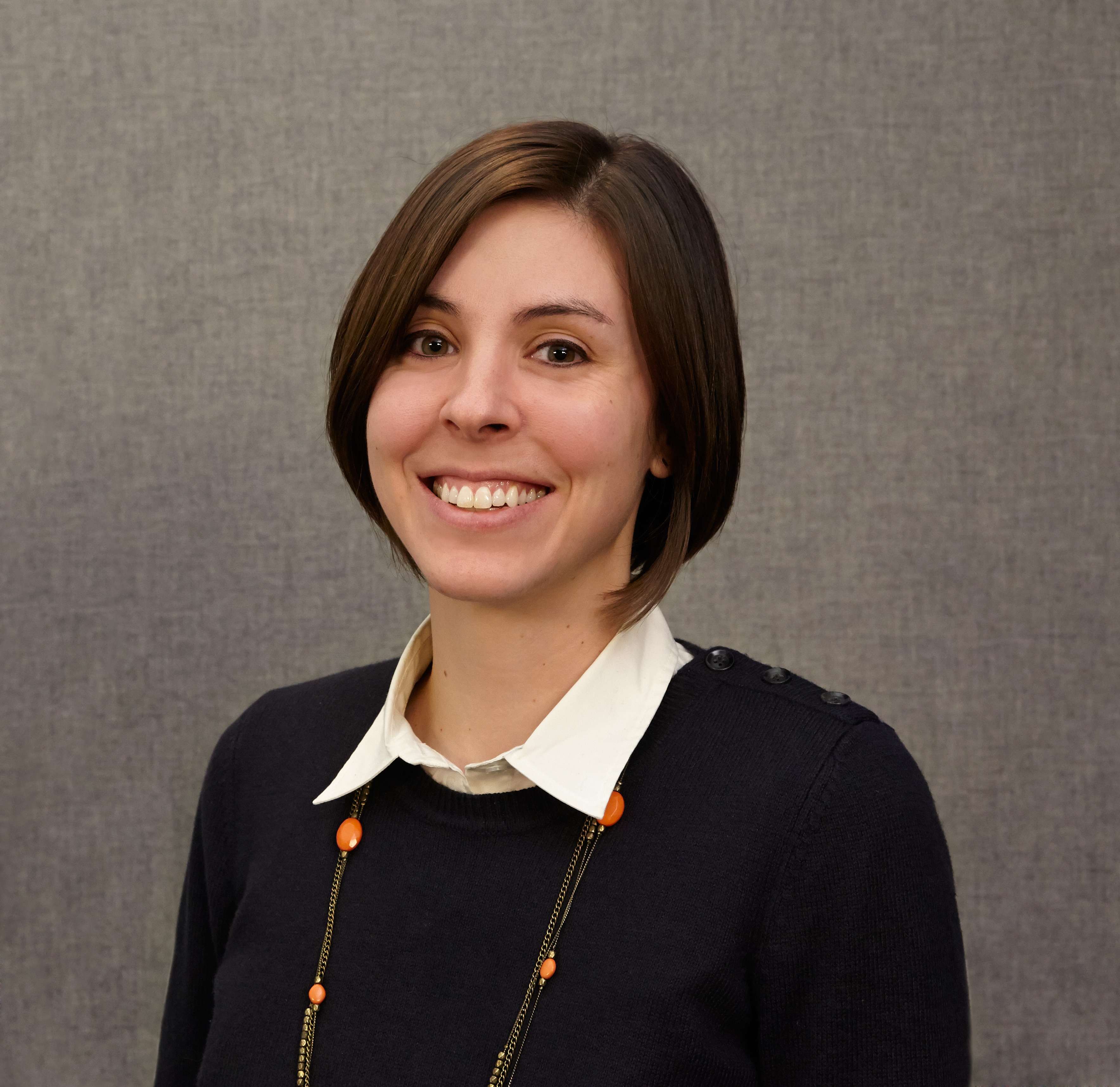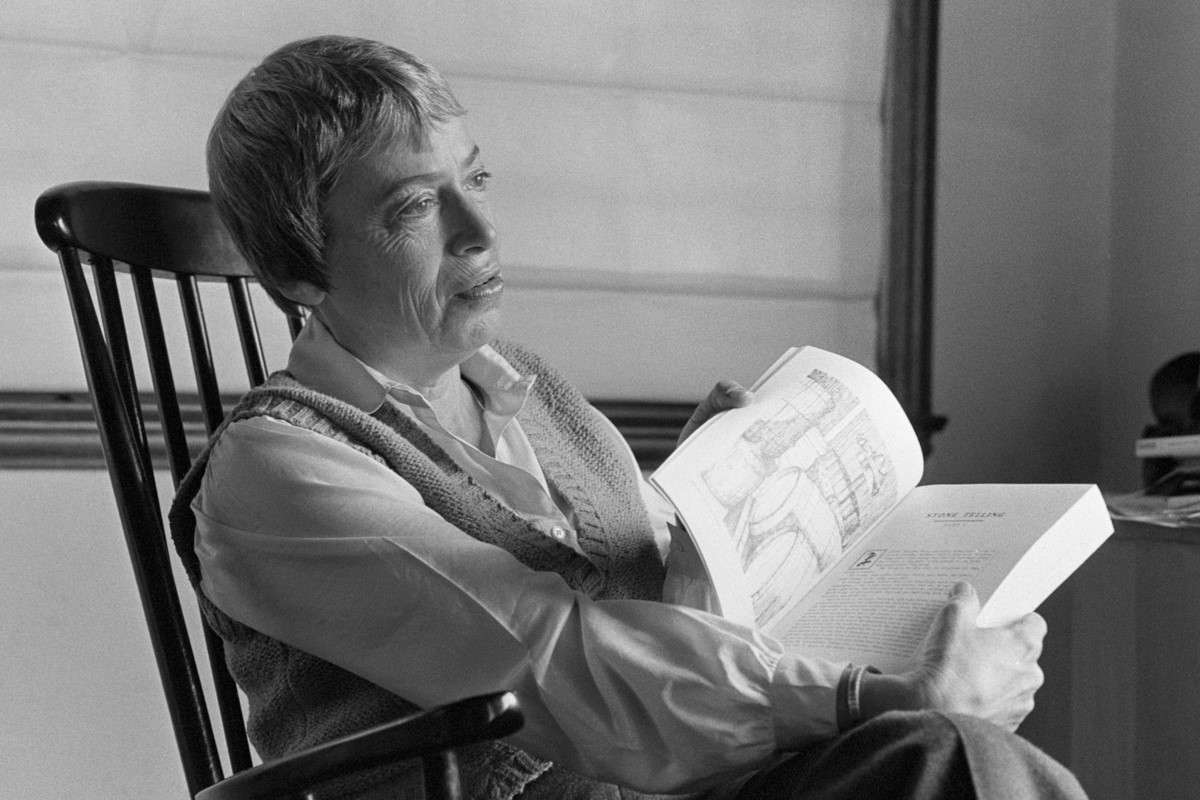Ursula K. Le Guin, Influential Science Fiction Writer, Dies at 88

Breaking space news, the latest updates on rocket launches, skywatching events and more!
You are now subscribed
Your newsletter sign-up was successful
Want to add more newsletters?

Delivered daily
Daily Newsletter
Breaking space news, the latest updates on rocket launches, skywatching events and more!

Once a month
Watch This Space
Sign up to our monthly entertainment newsletter to keep up with all our coverage of the latest sci-fi and space movies, tv shows, games and books.

Once a week
Night Sky This Week
Discover this week's must-see night sky events, moon phases, and stunning astrophotos. Sign up for our skywatching newsletter and explore the universe with us!

Twice a month
Strange New Words
Space.com's Sci-Fi Reader's Club. Read a sci-fi short story every month and join a virtual community of fellow science fiction fans!
Writer Ursula K. Le Guin, whose work spanned multiple genres and categories including science fiction, fantasy, poetry and essays, died on Monday (Jan. 22) at the age of 88, the New York Times reports.
The exact cause of death has not been announced, but Le Guin's son told the Times that his mother had been in poor health for months.
Over a career that spanned more than five decades, Le Guin authored "seven books of poetry, twenty-two novels, over a hundred short stories (collected in eleven volumes), four collections of essays, twelve books for children, and four volumes of translation," according to her website. She is particularly well-known for her series of young adult fantasy books that take place in the world of Earthsea, as well as her science-fiction novel "The Left Hand of Darkness" (Ace Books, 1969), about the meeting of interplanetary cultures.
Other prominent authors including Salman Rushdie, David Mitchell, Neil Gaiman and Iain Banks have cited her as an influence on their work, according to the Science Fiction Writers of America (SFWA). Ann Leckie, author of "Ancillary Justice" (Orbit Books, 2013), told Space.com in 2013 that Le Guin influenced her writing as well.
Le Guin earned a plethora of awards and honors during her writing career. In 1969, "The Left Hand of Darkness" won both the Hugo and the Nebula awards (which are considered the premier awards in that genre). She snagged both prizes again with her novel "The Dispossessed" (Harper & Row, 1974). Two more of her novels won the Nebula (most recently in 2008), for a total of four wins — more than any other author in that category. The National Book Foundation named her its 2014 Medalist for Distinguished Contribution to American Letters, and in 2017 she was voted into the American Academy of Arts and Letters.
Le Guin's last book, published in December, was a collection of nonfiction essays titled, "No Time to Spare: Thinking About What Matters" (Houghton Mifflin Harcourt, 2017).
Follow Calla Cofield @callacofield.Follow us @Spacedotcom, Facebook and Google+. Original article on Space.com.
Breaking space news, the latest updates on rocket launches, skywatching events and more!

Calla Cofield joined Space.com's crew in October 2014. She enjoys writing about black holes, exploding stars, ripples in space-time, science in comic books, and all the mysteries of the cosmos. Prior to joining Space.com Calla worked as a freelance writer, with her work appearing in APS News, Symmetry magazine, Scientific American, Nature News, Physics World, and others. From 2010 to 2014 she was a producer for The Physics Central Podcast. Previously, Calla worked at the American Museum of Natural History in New York City (hands down the best office building ever) and SLAC National Accelerator Laboratory in California. Calla studied physics at the University of Massachusetts, Amherst and is originally from Sandy, Utah. In 2018, Calla left Space.com to join NASA's Jet Propulsion Laboratory media team where she oversees astronomy, physics, exoplanets and the Cold Atom Lab mission. She has been underground at three of the largest particle accelerators in the world and would really like to know what the heck dark matter is. Contact Calla via: E-Mail – Twitter

